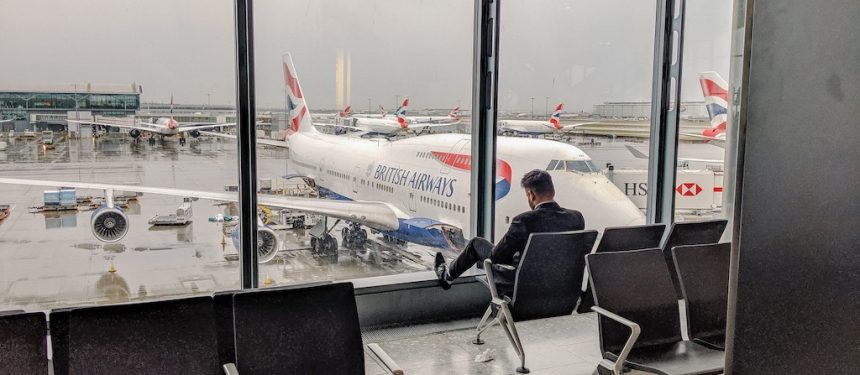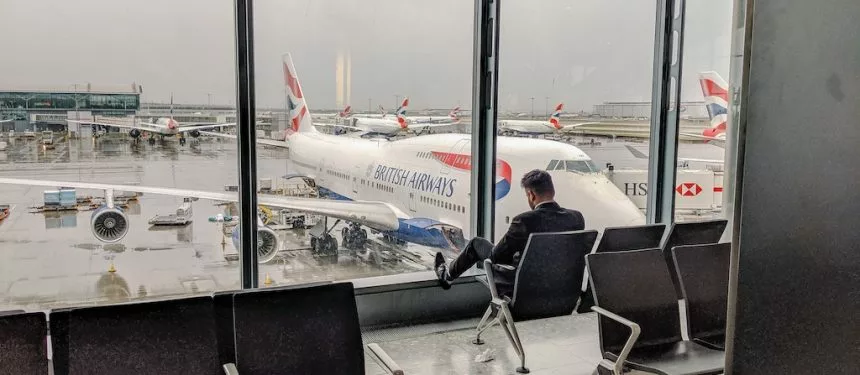[ad_1]
Short-term loans on offer in Nigeria to bypass visa checks
Companies offering students short-term loans to prove they have enough money to study abroad continue to operate in Nigeria, leaving agents concerned about students applying to universities without the funds to support themselves once they arrive in the country.
 Photo: Unsplash.
Photo: Unsplash. Last year, The PIE News reported that Nigerian companies were offering would-be international students short-term loans to prove to immigration officers that they have the minimum funds needed to support themselves on arrival in country. These loans are then repaid once a visa decision has been made.
Agents say that students are continuing to take out these loans and The PIE has found further evidence of companies offering these services on social media.
In a post on Facebook, one company set out the terms of the loans on offer: “Funds would be domiciled in your bank account for 30 days up to 180 days”. Another offered to “help you provide the funds you need for visa approval”.
These short-term loans differ from traditional study loans which dispense long-term funding to cover the cost of tuition and living in a foreign country, raising questions about how, if successful in their visa applications, students relying on temporary financing will support themselves on arrival at universities.
“It’s as if nobody cares”
Although the loans are not specific to certain student destinations, agents suggested that UK immigration checks appear to be less thorough when asking students to prove where their money is coming from.
“The [visa] requirements have never been so easy,” said Emeka Ude, Nigeria managing director at BCIE. “It’s as if nobody cares.”
Destination countries have different guidelines for students on how they should prove they have enough money to live there.
According to UKVI guidance, UK study visa applicants must show the required level of funds have been in their bank accounts for a consecutive 28 day period which ends no more than 31 days before the application date.
The Home Office reviews applications on a case-by-case basis and may ask additional questions or request further documentation, including asking students to show the source of their money. It is not known if any of the students using these loans are approved for UK visas.
To receive a Canadian study permit, applicants can prove funds in a number of ways, including showing bank statements covering a four month period – meaning students would need to take these loans out for longer and thus pay more in interest.
The Canadian government also introduced a specific visa stream for Nigerian students in 2020, via which they can receive a faster visa decision if they show 12 months of banking history.
Australian visa guidance suggests that immigration officers will ask for the source of any deposits of money. The guidance states, “If you receive any payments before we make a decision on your application, give us evidence including the terms of the loan and the full amount you will be paid.”
The number of Nigerian students in the UK more than doubled in 2021/22, reaching 44,195 compared to 21,305 the previous year.
“The numbers you see are a mix of the fraud and the genuine ones,” said Ude. “And the genuine ones are those that have real interest to study and they’ve got the money.”
Ude said the practice was making life difficult for agents like himself, as Nigerian students who genuinely do have the funds required to pass the visa checks find themselves waiting longer for course offers and visa decisions as UK universities are inundated with applications.
Ude called on the Home Office to introduce more stringent checks on the financial status of international students.
“The UK has disappointed some of us who have been in the industry that long and enjoyed the credibility of going to the UK,” Ude said.
Bukky Awofisayo, regional head of Africa at education agency Intake, which recently joined IDP, said since “the trend” began, Intake has expressly told students that the agency does not offer proof of funds services.
Imad Chaoui, regional director at IDP Education, said the organisation ‘strongly discourages’ the use of short-term loan companies for visa purposes.
“It is important students engage with trusted advisors and agents to help them with their study abroad applications.
“Organisations like IDP and Intake have extensive screening and pre-departure processes to help ensure students are well-positioned to thrive in their study destination, this includes being clear on the financial impacts of studying abroad,” Chaoui added.
“As a sector, we must work together to ensure students have the correct information about the requirements for an international education, and are connected with appropriate support to help them navigate the challenges of studying abroad.”
The Home Office did not respond to new requests for comment, but told The PIE last year that it has “robust” measures in place to counter fraud.
[ad_2]
Source link
Meet Our Successful Graduates: Learn how our courses have propelled graduates into rewarding
careers. Explore their success stories here!
Discover More About Your Future: Interested in advancing your teaching career? Explore our
IPGCE, MA, and QTS courses today!

Explore Our Courses: Ready to take the next
step in your education journey? View our
comprehensive course offerings now!




